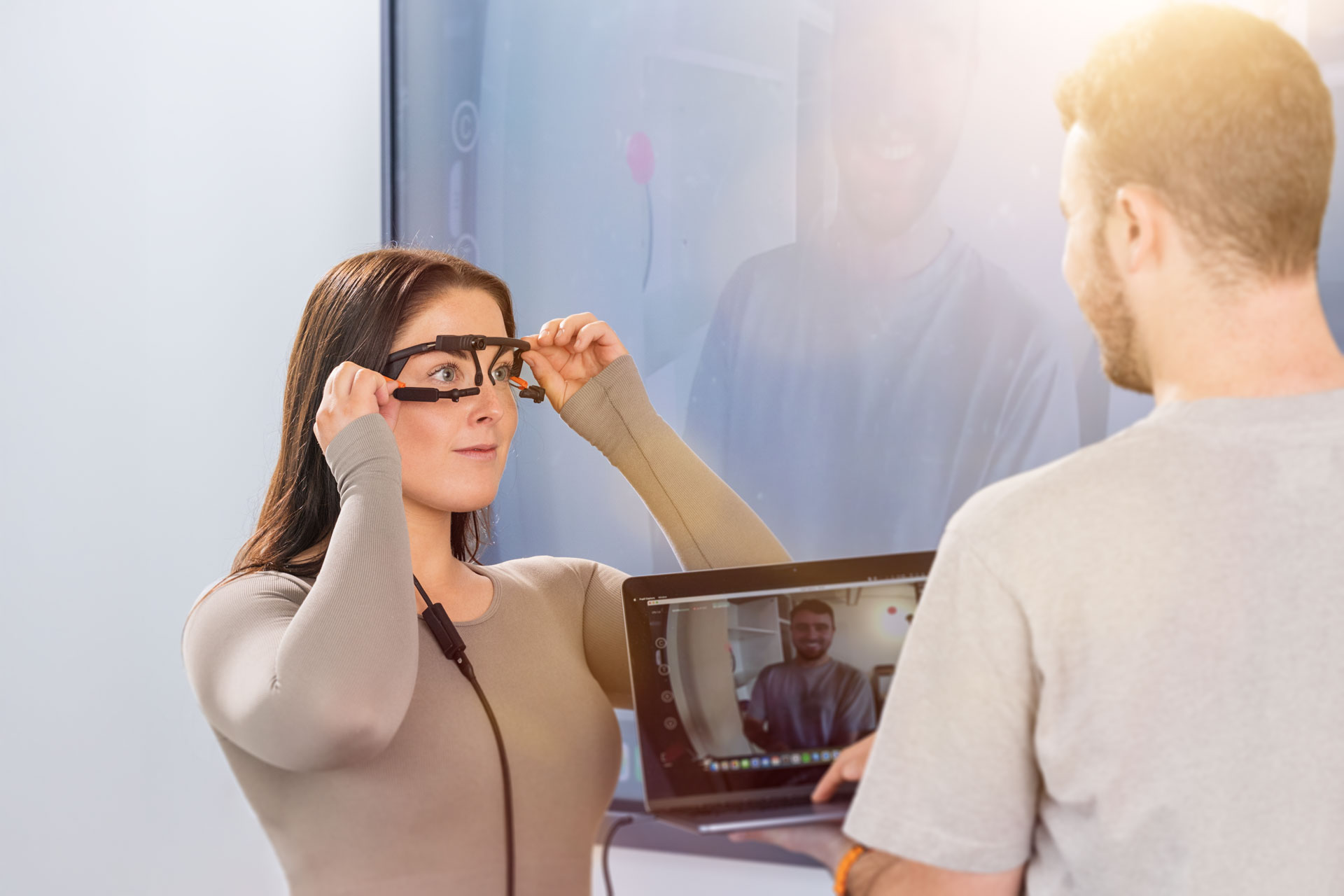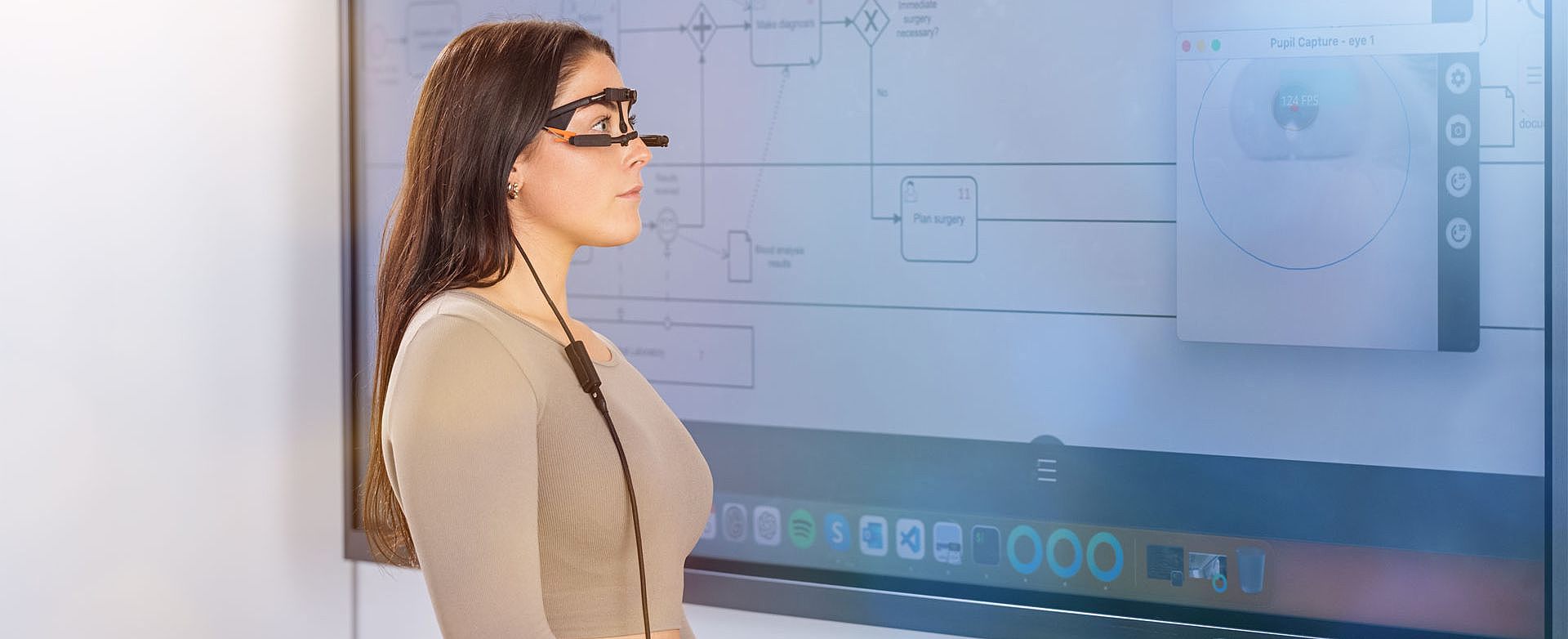Neurobiological mechanisms
Linking theoretical concepts and cognitive behavior

The English-taught master’s programme "Cognitive Systems" at the University of Ulm explores the theoretical and empirical foundations of cognitive skills. It focuses on modeling connections between neurobiological mechanisms, cognitive behavior, and psychological studies. The insights gained support applications such as intelligent robots, vehicles, assistance systems, and smart technologies that enhance human performance.
Master of Science (MSc)
20
120
4
This graphic is for illustrative purposes only. Detailed information can be found in our current curriculum Degree course scheme
Linking theoretical concepts and cognitive behavior
Cognitive systems process information to control behavior by combining perception, cognition, and (motor) actions—consciously or unconsciously. In humans, such abilities enable flexible interaction, problem-solving, learning, and planning. These functions can exist in biological organisms or be implemented in technical systems, known as cognitive technical systems.
Studying cognitive systems is inherently interdisciplinary, involving computer science (especially AI and neuroinformatics), engineering, psychology, biology, neuroscience, clinical sciences, and philosophy, which adds ethical and conceptual perspectives.
To function cognitively, systems need mechanisms for:
The English-taught MSc programme "Cognitive Systems" at Ulm University covers the foundations of these abilities. Students develop models to explore both biological and technical systems through theoretical concepts, psychophysical studies, and psychological tests. The insights support applications like intelligent robots, assistance systems, smart devices, and cities that enhance human performance.
The MSc in Cognitive Systems at Ulm University offers a unique interdisciplinary environment, combining Computer Science and Psychology within one faculty. Courses build on foundational knowledge and cover the latest research and developments in cognitive systems. Students gain theoretical and practical skills to investigate cognitive systems across research and applied contexts.
The program includes tailored introductions: psychology for students with technical backgrounds, and computer science for those from psychology. All students develop an understanding of cognitive systems, computational mechanisms, and modeling approaches. They learn to assess and apply current methodologies and develop the ability to work independently, solve problems, and think critically.
Graduates are equipped to:
The English program emphasizes scientific communication, teamwork, and presentation skills through interdisciplinary and applied projects. It offers an excellent study environment for students from around the world.
The Cognitive Systems program focuses on understanding cognitive mechanisms, which requires formal descriptions. Therefore, applicants should have a strong background in mathematics (such as calculus, algebra, and statistics) and be ready to expand their knowledge. If you're unsure about your level, we recommend the OMB+ online course at www.ombplus.de to refresh basic math skills.
Having experience with programming is beneficial. For applicants without a computer science background, we offer an introductory course that covers basic concepts in algorithms and computer science.
Students interested in the program have to submit their application documents, which will then be reviewed. Since the program has a restricted number of places, qualified candidates are then ranked as defined the admission statutes. The statutes also define the entrance requirements and refer to the university's language policies for the English language requirements.
The currentapplication period is from April 1 - May 15. Tuition fees may apply.
We look forward to your application.

Perception and cognition,
learning and memory, planning, decision-making and reasoning, and interaction
A great way to broaden your horizons in a subject area is to study at a foreign university. Students at Ulm University can apply for one or two semesters abroad at numerous universities, both throughout Europe as part of the ERASMUS programme and outside Europe. If lectures are not required, internships and theses at other universities are also possible.
Ulm University has exchange agreements with over 100 universities in 26 countries.
International Office
International Office

Studieren in Ulm
Unsere große Abschlussfeier am Münsterplatz
A Brief Introduction to Ulm
Graduates of the MSc in Cognitive Systems are well-equipped for careers in scientific research and industries where human-technology interaction is key. The acquired interdisciplinary expertise qualifies for fields such as intelligent systems development, human-machine interaction, cognitive ergonomics, e-learning, interface design and much more.
The Ulm region hosts many companies with demand for graduates with auch a unique interdisciplinary expertise. Additionally, graduates are well-prepared for academic careers, with opportunities for doctoral positions either at Ulm University’s striving research environment or at other national or internationally universities.
Welcome to the most liveable city in Germany. Albert Einstein's birthplace is a unique combination of science, leisure, top employers and culture. Top locations and events such as the Ulmer Zelt, Nabada or the Donaufest attract visitors to the quaint streets. Here you feel at home!
Copyright: City of Ulm
Last step: If you can answer these questions positively, the Cognitive Systems program could be your dream degree program!
Still have questions? To the student advisory service